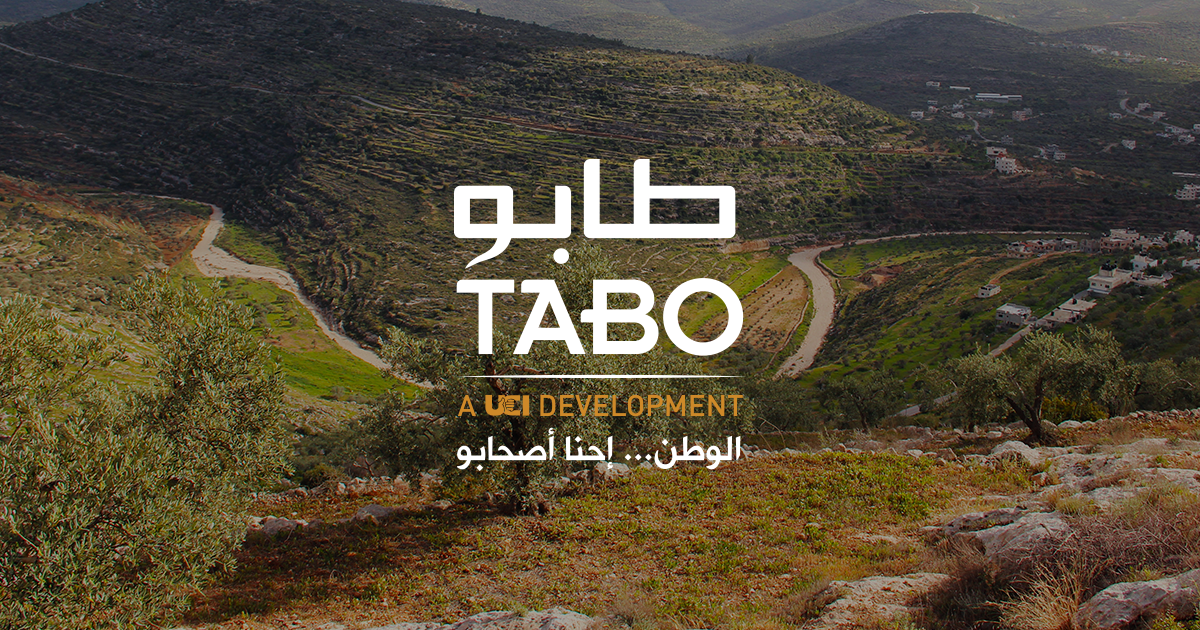May 11, 2011
With the aim of "putting Palestinian land in Palestinian hands," the TABO project seeks to promote broader ownership of the West Bank by making land more affordable and encouraging formal registration of land holdings in official title deeds.
Though the Palestinians claim to know who owns every hill and valley in the West Bank, only a third of the territory occupied by Israel since 1967 has formal title deed, or "tabo" in Arabic.
Palestinian and Israeli activists say that loophole has reduced the legal risks to Israel of settling the territory opening the door to what they describe as a land grab that has undermined Palestinians" hopes of founding an independent state.
The plots for sale in the project launched by Union Construction and Investment (UCI) come with title deeds acquired from the Palestinian Authority in a process which the project manager said would deter most.
"We"ve been working on this for three years," said UCI General Manager Khaled Al Sabawi, explaining how much of the land being offered in the venture was bought from owners holding it under power of attorney -- legal status far short of title deed.
"It"s been an exhausting procedure with so much red tape to cut through to buy land which does not have title deed and to issue the title deed for it," he said.
"It"s an obstacle course that requires a lot of patience and is very difficult for an individual to do on their own," he said, unfurling a three-page long flow chart detailing the steps required to secure title deed from the Palestinian Authority.
BUY ONLINE
Now, Palestinians with some $20,000 to spare can buy one of the 200 plots that went up for sale on the TABO web site last week. Partly aimed at the Palestinian diaspora from Chile to the Gulf, the site allows visitors to view a 3-D image of their prospective land, "add to cart" and begin buying online.
The plots, mostly around one dunam (1,000 meters square) in size and spread over three locations, are outside the main West Bank towns where land prices have been driven up by buoyant economic growth in the last few years.
In Ramallah, the Palestinians" administrative capital, a dunam can cost more than $1 million, Al Sabawi said.
"In Ramallah, small plots are only affordable for people with serious money to invest. It is difficult to buy outside the main urban centers due to the fact that land only comes in large tracts," he said.
Sami Elkhatib, a Palestinian based in Abu Dhabi, said he was considering buying one or two of the plots in the sites between Ramallah and Nablus. UCI has mapped out the sites with essential infrastructure.
"I already put some money in equities," said Elkhatib, a private banker. "This is another way to invest to help the economy," he said in a telephone interview.
UCI declares it is an "ethical investment" that helps "prevent illegal land confiscation in Palestine."
Since Israel captured the West Bank in 1967, around half a million Jews have settled in the territory -- to Israel, the biblical Judea and Samaria. They include 200,000 who live around Jerusalem on land formally annexed to Israel after the war.
MAPS, MEASURES AND PATIENCE
Many of the Jewish settlements built in the West Bank have been constructed on what Israel has declared "state land."
To do that, Israel has used a 19th century law that entitled the Ottoman authorities to take control of land that was not being used and whose ownership was not officially registered, said Peace Now, an Israeli activist group.
Since Israel began invoking the law in the 1980s, around 16 percent of the West Bank has been declared state land, said Hagit Ofran, who monitors and analyses settlement construction for Peace Now.
"What Israel did was to survey the whole West Bank to find the land that is not cultivated and not registered with anybody. The fact that it is not registered does not mean there is no ownership," she said.
"This trick would not have been valid if it wasn"t for the lack of registration," she added. The process of land registration in the West Bank came to a halt in 1967 when Israel captured the territory from Jordan. Ofran said Israel"s justification was that some Palestinian landowners had fled in the conflict and therefore to continue registration would be unfair on the absentees.
In 2002, the Palestinian Authority, which governs around 40 percent of the West Bank, including the main Palestinian towns, established its own land authority to resume the process.
But it has made little headway in a costly and time-consuming procedure involving maps, measures and patience.
Nadim Barahmeh, head of the land authority, believes it is no coincidence that Jewish settlement is thinnest in the northern West Bank where land registration is most widespread.
The land authority has moved from a series of pilot projects funded by international donors to start work registering land in Bethlehem and Salfit, two areas further south, and will start work in a third area in 2012.
"The areas where there is final settlement of land ownership definitely helped put a limit to the erection of settlements," he said.
